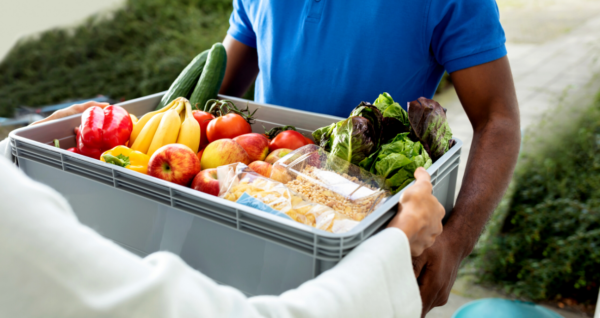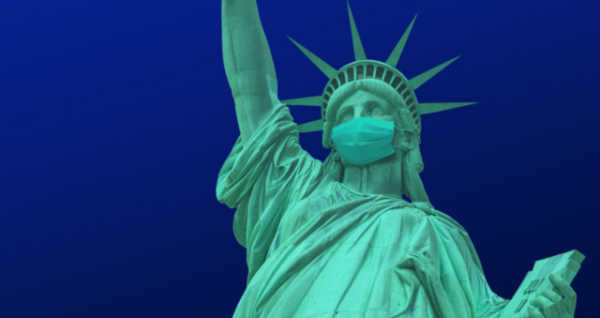With the support of our corporate and institutional partners, from mid-March through October, Sanctuary distributed over $250,000 to more than 425 families for emergency food, supplies, rent, medicine, clothing, and more.
Food insecurity, an important risk indicator for intimate partner violence (IPV), has skyrocketed over the last year due to COVID-19. The ongoing loss of jobs and wages, coupled with safety and mobility issues, has forced thousands of households across New York to cut down on the quantity and quality of their food consumption. The closures of NYC schools and the overburdening of food banks have further exacerbated the demand for food and groceries. As a result, roughly one in four New Yorkers is experiencing hunger.
For many survivors, food insecurity was already an issue before the pandemic. Researchers have found a strong connection between IPV and food insecurity. Evidence shows that:
- Financial abuse – or the control of one’s ability to acquire, use and maintain money by an intimate partner – can lead to food insecurity;
- Survivors who escape abuse disproportionately rely on public assistance and low-wage jobs for survival and thus face a higher risk of food insecurity;
- Factors that give rise to food insecurity, such as poverty and financial stress, also serve as indicators for increased risk of violence.
As one of New York State’s leading providers of comprehensive services for survivors of gender violence, Sanctuary plays a critical role in helping New York’s most marginalized families find and maintain safety and stability. We have always had clients who struggle to afford or access food while escaping abusive relationships. Since mid-March, however, we have seen food insecurity skyrocket to become the single most pressing need for the thousands of families we serve.
Some food resources have become more accessible in NYC than in the first months of the crisis, however, there are still many barriers to food security for our clients including:
- Ongoing job loss and lost wages;
- Undocumented and partially-documented immigrant clients cut out of public resources and continued fear of ICE raids in public spaces like food banks;
- Limited options and timing restrictions for those who do qualify for SNAP (Supplemental Nutrition Assistance Program) benefits;
- Long lines, pre-selected options, and limited hours and locations for food banks making access difficult for clients with limited mobility, childcare concerns, inflexible work hours, and dietary issues.
- Additionally, the looming housing crisis will undoubtedly exacerbate food insecurity for many forced to choose between paying rent and buying food.
Recognizing the urgency of the issue, we have kept food pantries at our five shelters and main office fully stocked throughout the pandemic. To meet the increased demand, support non-shelter clients, and protect the safety of clients and staff throughout COVID-19, we have developed a more flexible and survivor-centered approach to food grant distribution. New standardized guidelines for distribution of food grants, developed by staff across program and administrative departments, are based on household size and receipt of SNAP. We also created a shorter, digitized grant request process that improves transparency, enables remote access, allows for easier purchasing via credit card, and gets money for food into the hands of our clients more quickly. Most importantly, we dramatically expanded use of electronic gift cards and grocery delivery services.
We are proud to announce that through this new approach, and with the support of our corporate and institutional partners, from mid-March through October, Sanctuary distributed over $250,000 to more than 425 families for emergency food, supplies, rent, medicine, clothing, and more via electronic gift cards and delivery services like Amazon Prime, Walmart, Fresh Direct, and Target. By expanding the receipt and delivery options available to survivors, our approach recognizes that clients know what is best for their families—whether that be culturally-specific foods or more dietary options. This approach also addresses the inequities that result in food deserts and delivery dead-zones in some communities — inequities that have been exacerbated by the pandemic.
Even with the successful delivery of our services and our significantly expanded emergency food grants program over the last nine months, we know that demand will only keep growing. Given the spike in domestic violence and ongoing economic crisis, we anticipate a long-term need for support and services even after the city reopens. Despite the ongoing challenges, Sanctuary will continue to utilize existing private funding sources and identify new opportunities to meet our clients’ evolving food needs throughout and beyond the COVID-19 crisis.
—
Our sincere gratitude goes out to The Gerstner Family Foundation, Robin Hood Relief Fund, NYC COVID-19 Response and Impact Fund, Brooklyn Community Foundation, No Kid Hungry, Tikkun Olam Foundation, Capital One, Monday.com, the Sunshine Foundation, and French-American Aid for Children, for supporting Sanctuary’s client emergency grants programs during these unprecedented times.


